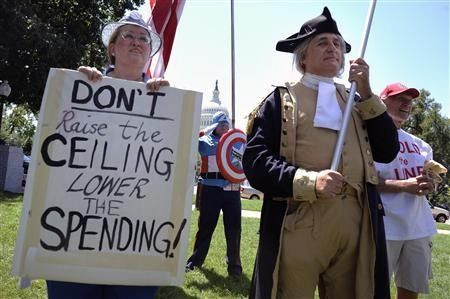IRS Scandal: Organization Threatens IRS Over Targeting Of Conservative Groups

As new details continue to emerge in the scandal over the Internal Revenue Service's admitted targeting of conservative groups applying for tax-exempt status, a line has been drawn in the sand by a public interest law firm representing dozens of such groups across the United States.
Jordan Sekulow, executive director of the American Center for Law and Justice, said on Tuesday that it had demanded that the IRS grant long-awaited tax-exempt status to 10 conservative groups it represents by the end of the week, if it wants to avoid legal action.
"If they don’t comply with our demands by Friday at noon, we are going to inform our clients of legal remedies that are available to address their grievances with the IRS, and that could include lawsuits," Sekulow said in a phone interview.
The IRS did not immediately respond to an inquiry about the threat, but Sekulow said that if the demand is not met, the ACLJ will consider various avenues to ensure that the 10 groups in question are granted the tax-exempt status they have been waiting for as long as two years to attain.
Conservative organizers across the country say that the campaign by the IRS to target groups with "Tea Party" or "Patriot" in the name has had a chilling effect on the movement's attempts to establish legitimacy.
Jeanne Seaver, co-founder and treasurer of the Savannah Tea Party in Georgia, said that a number of conservative organizations looking to attain tax-exempt status have seen their efforts stymied at the hands of the IRS.
"There were a lot of groups out there that gave up on their [tax-exempt] status after three years of trying to get it because they kept asking for information, after information, after information," Seaver said. "They were delayed and delayed and some gave up on it."
And Janet Pate, treasurer of North Carolina's Randolph Tea Party, said the IRS never responded to her group's March 2012 application for tax-exempt status, and that now a key deadline has passed, it means that the organization would have to be reincorporated if its members want to re-apply for the exemption.
"We kind of discussed it last summer, we were like, 'we still haven’t heard anything,' and we said 'of course not.' We felt then that as a conservative group maybe we’re being targeted," Pate said. "We haven’t been contacted back about anything, but I did send it in, put everything together that we’re supposed to. Is it a coincidence that we haven’t heard anything, that it could have been lost in the mail? I don’t know but it just seems kind of weird. Because if I was sending it in for myself I don’t think it would have gotten lost."
Pate added that she filed a similar application for tax-exempt status around the same time for a payroll education group she is involved with, and that the IRS took only three months to respond to that submission.
© Copyright IBTimes 2025. All rights reserved.




















